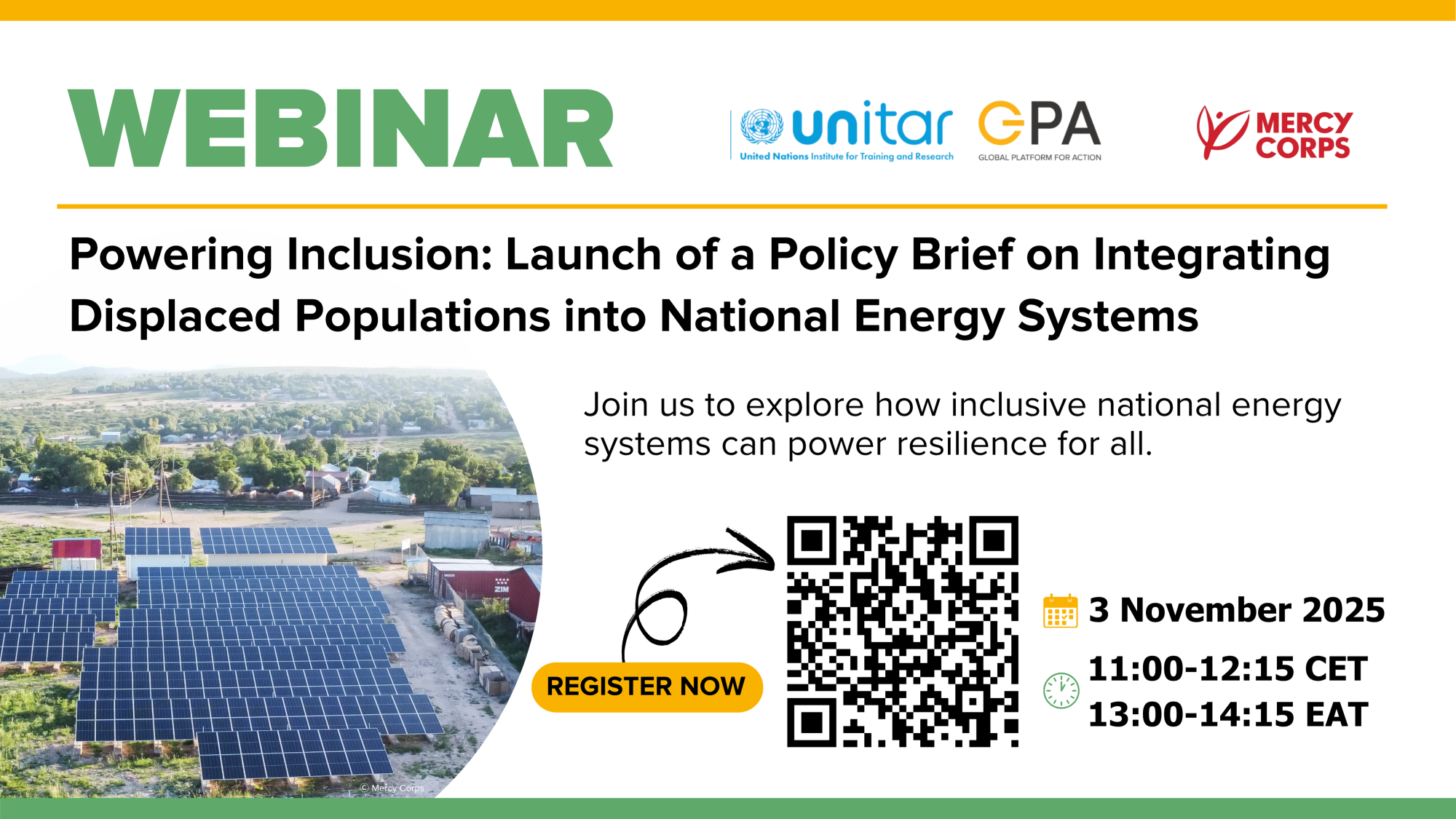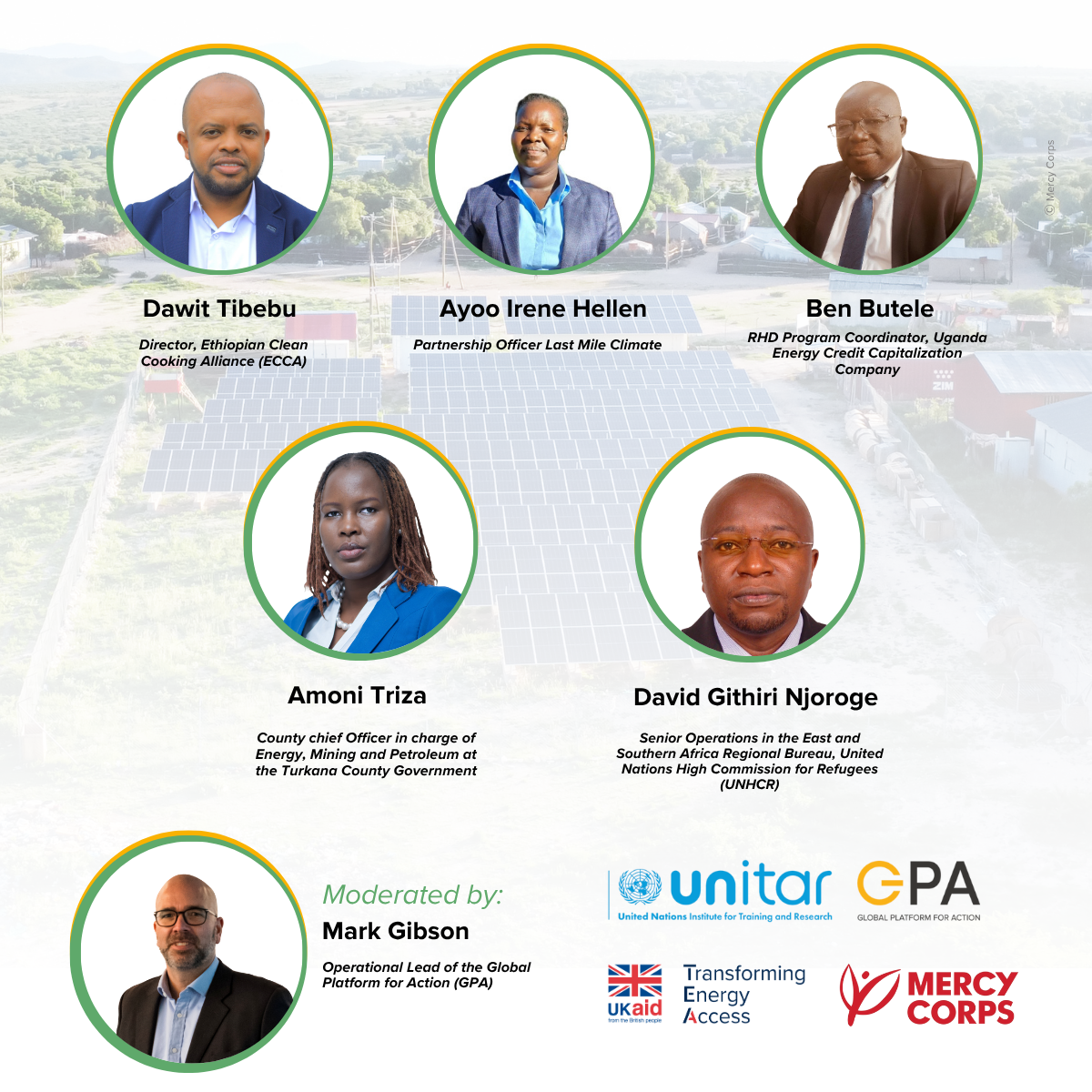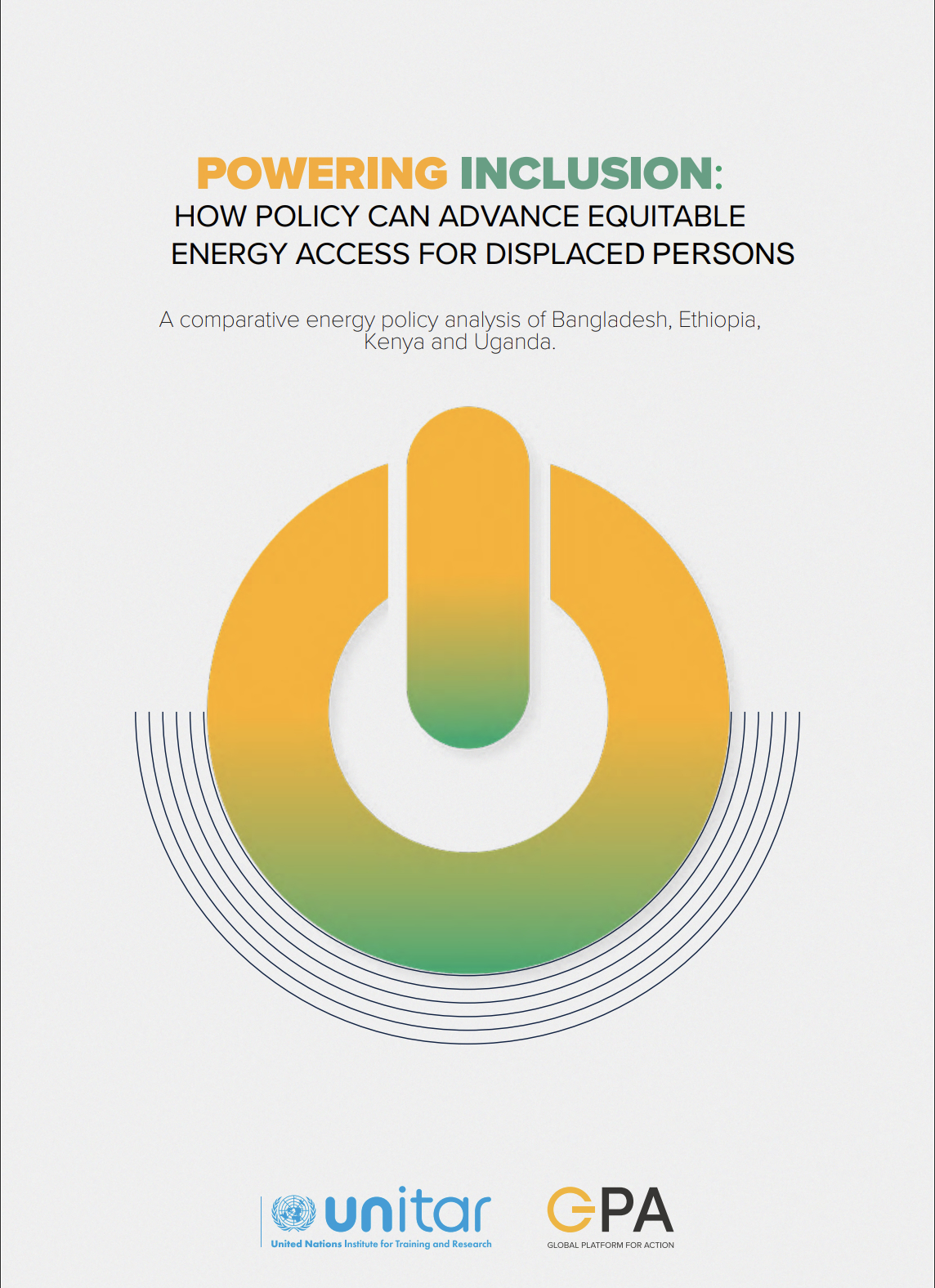
As global displacement and climate pressures intensify, integrating refugees into national energy systems is no longer optional — it’s essential.
Together with our Steering Group member Mercy Corps, under the Transforming Humanitarian Energy Access programme (THEA), we invite you to join us for the launch of our new policy brief comparing Uganda, Kenya, Ethiopia, and Bangladesh. This research goes beyond technical solutions — it explores the systemic barriers that keep refugees excluded from sustainable energy access and highlights how inclusive policies can unlock finance, build resilience, and power opportunity for all.
Overview of the Policy Brief
This webinar, hosted by the GPA-Mercy Corps under THEA (Transforming Humanitarian Energy Access), marks the launch of the policy brief, “Powering Inclusion: Policy and regulatory landscapes shaping energy access for displaced populations.”
The brief presents a comparative analysis of the policy and regulatory environments in four major refugee-hosting countries: Uganda, Kenya, Ethiopia, and Bangladesh. It moves beyond technical solutions to address the fundamental systemic barriers that prevent displaced persons from accessing reliable, affordable, and sustainable energy.
The research finds that while progressive policies exist (e.g., Uganda’s SERP, Kenya’s devolved county plans), implementation is consistently hampered by:
- Fragmented funding and a reliance on short-term humanitarian projects.
- Weak institutional coordination between humanitarian and development actors.
- Legal and political barriers that exclude refugees from national systems.
- A critical lack of refugee participation in energy planning.
Crucially, the brief argues that inclusive energy policy is not just a moral imperative but a strategic one. It demonstrates that when refugees are included, everyone wins: attracting larger-scale development finance, building more resilient infrastructure, fostering social cohesion, and creating market opportunities that benefit both host and displaced communities.
Why This Launch is Relevant and Timely
The global humanitarian system is facing an unprecedented convergence of crises: record levels of forced displacement, the escalating impacts of climate change, and severe budget cuts. In this context, the traditional model of parallel, humanitarian-only energy delivery is not only unsustainable but also a critical failure in our collective response. Energy is the bedrock of dignity, safety, and opportunity; without it, education, healthcare, and livelihoods collapse. The current funding shortfalls make it impossible to continue with business-as-usual. This moment of fiscal constraint, therefore, demands a paradigm shift towards efficiency and sustainability. We must transition from inefficient, short-term projects to integrated, national systems that leverage development financing and market forces. This briefing provides the evidence and the roadmap for that shift, arguing that integrating displaced populations into national energy planning is the most effective way to "do better with less" and build long-term resilience for all.
Where and When?
Date: Monday, 3 November 2025
Time: 11:00 – 12:15 CET | 13:00 – 14:15 EAT
Platform: Zoom
Register here.

THEA is implemented by Mercy Corps in partnership with Ashden and the Global Platform for Action on Sustainable Energy in Displacement Settings (GPA) and is funded by the U.K.’s Foreign, Commonwealth and Development Office (FCDO) via the Transforming Energy Access platform and managed by the Carbon Trust.
Learn more about The Transforming Humanitarian Energy Access (THEA) programme here.
Missed the session? Watch the recording here.
Read the report here
Last updated: 06/11/2025

